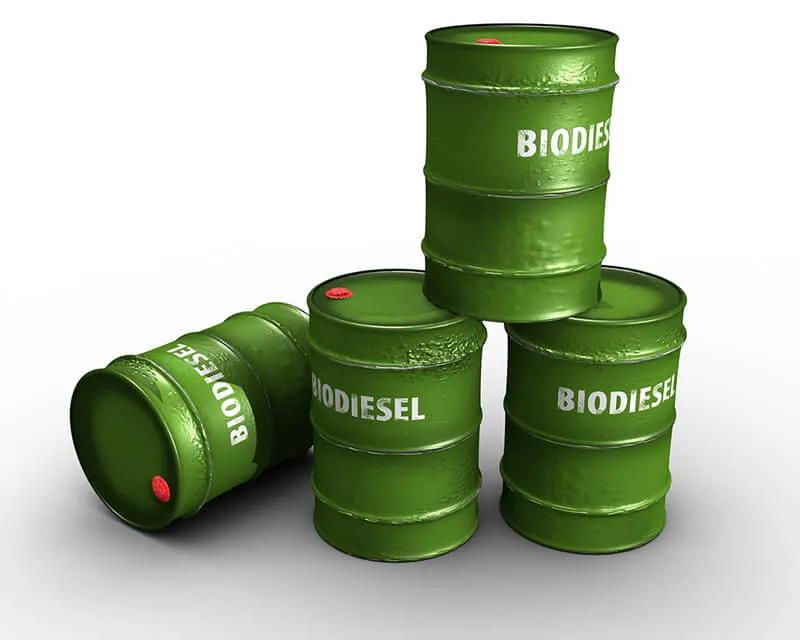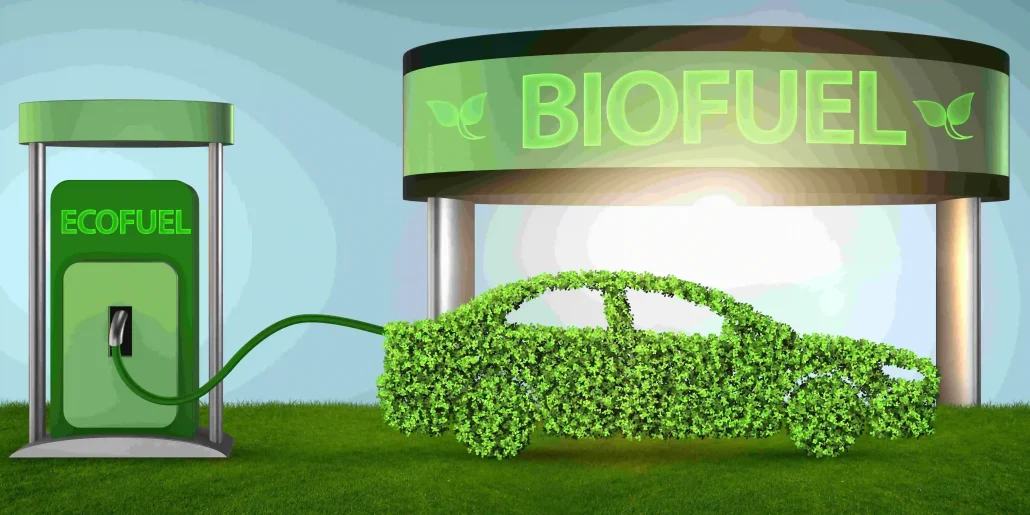- 021-91034194
- Info@pishco.ir
- Tehran, Sa'adat Abad
Home » clean fuel
In recent years, due to the increasing consumption of fossil fuels such as oil and diesel, and as a result, the reduction of non-renewable energy sources and, most importantly, the increase in environmental consequences caused by fossil fuel sources – which have greatly affected human health and the environment – in Many research and academic centers around the world have conducted extensive research on the use of renewable energy sources, in other words, clean fuel sources.

A group of researchers of Amirkabir University of Technology have proposed a plan with the aim of converting edible oil waste into clean fuel, which seems to be able to play an important role in reducing the consequences of this waste entering water sources and its pollution, and is a suitable solution for replacing fossil fuel sources. with clean fuel sources. In an interview with Jam Jam, engineer Bebohd Bashiri Miandoab, the managing director of Danesh Banyan Company based in the growth and entrepreneurship center of Amir Kabir University of Technology and the executive of the environmental plan for the collection of edible oil waste, says: one of the pollutants that is present in almost all countries – the countries Industrial or non-industrial – traces of it can be found in the waste of edible oil that enters the environment from restaurants and food processing factories. According to the results obtained from the studies conducted since 2008 in European countries, especially in Germany, each liter of edible oil waste can lead to the contamination of a thousand liters of drinking water. If we collect edible oil waste from homes, restaurants and food factories, we can save millions of liters of water from the risk of contamination. Our goal of implementing such a plan is to manage this problem and environmental threat, which can be very dangerous. In our country, edible oil waste is not recognized as waste. We intend to inform people so that they are more informed about the importance of removing edible oil waste, and when the necessary culture is done in this field, we can achieve more achievements in the field of edible oil waste management.
Edible oil – which is thrown away after consumption – is a waste that is not included in the headings of urban waste management. The organizer of this project adds: In European countries, discarded oil is known as a very dangerous waste. One liter of waste can pollute a thousand liters of drinking water. We have done the initial work on the implementation of this knowledge-based plan, and this plan is to be registered as a comprehensive plan with the cooperation of the vice presidential science and technology office, and this process is now in its final stages.
In response to whether they have had negotiations with the environment to implement the project, he explains: We have had negotiations with the Environmental Protection Organization as a monitoring organization in the field of the environment, and the project has been well received by this organization. In our country, the environmental organization is not a complete executive organization and has more of a supervisory role. This organization has always emphasized that the country’s drinking water resources, water ecosystem and marine ecosystem and wetlands should be protected. But the environmental organization cannot be very effective in the implementation of projects aimed at protecting the environment. Through the negotiations that will be held in the near future with the Ministry of Health, Treatment and Medical Education, this environmental problem will be introduced as waste in the waste network of municipalities and rural districts of the country.
Engineer Bashiri says about the process of converting waste oil into clean fuel: previously, studies have been conducted in many research centers, such as the New Energy Organization, to convert waste oil into fuel, and researchers who work in this field have studied the process of how to convert oil into They are familiar with clean fuel. Processing clean fuel from edible oil is done in clean fuel reactors. First, waste oil must be collected from homes, restaurants, and food factories, and then transferred to a set of sub-sets of the New Energy Organization in Saveh, where the waste oil is converted into clean fuel. The buyer of our product is new energy organizations. Of course, no contract has been concluded yet. After processing, this waste turns into clean fuel. In the next step, the fuel produced in clean fuel reactors will be converted into clean energy or green energy.
The executive of the environmental plan explains the use of this waste in other fields as follows: This waste can also be used to stabilize the soil. One of the concerns that exists in the country now is the problem of fine dust and dust particles. Various organizations and ministries are trying to minimize this problem by mulching the desert. Now, extensive studies and activities have been carried out in many research centers in the field of producing all kinds of biological mulches. The plan proposed by the Industrial and Productivity Research Center of Amir Kabir University of Technology is to use edible oil waste, which is a problem for the country’s water resources, as a soil stabilizer. Although edible oil waste is not a bio-mulch, it has the characteristics and performance of a bio-mulch and can be used as a soil stabilizer. Since the entry of this waste into the underground water table causes water pollution, this waste should be used as a stabilizer in areas that are far from the underground water table.
According to Bashiri, in addition to these two knowledge-based projects, i.e. production of clean fuel and soil stabilizer, edible oil waste can also be used in soap making and agricultural industries. He states: We are trying to use them in other fields by examining other uses of this waste – which has been taken into consideration by European countries. In addition, it should be kept in mind that the implementation of the plan to collect oil waste from homes, restaurants and food factories can lead to employment. The main use of this waste is the production of clean fuel.
In response to what policies have been considered for the best possible implementation of the plan, Bashiri says: We have considered incentive policies to implement this plan and attract the participation of as many people and factories as possible. However, no memorandum has been concluded in this regard yet. Based on the initial negotiations in this field, a vegetable oil producing company is supposed to cooperate with us in the implementation of incentive policies. According to this incentive policy, in exchange for waste collection, a gift is considered for people or restaurants; For example, one liter of oil can be considered as a reward for every eight liters of waste. Maybe this gift is not very significant for people, but in restaurants, such an incentive policy can play an important role in implementing this plan as well as possible. Our goal is to protect the environment and people’s cooperation and participation in the implementation of this plan is for their benefit.
Clean fuel is a fuel that does not contain any petroleum substances. This fuel is combined with petroleum diesel in order to increase production quality. Clean fuel can be made from vegetable oils or waste and discarded oils. This fuel is biodegradable and when it is used as one of the components in the vehicle fuel, we need minimal changes in the engine. Clean fuel can be used as a suitable fuel and even more efficient than diesel. This fuel can be the primary material for hydrogen production in fuel cells. In addition, biodiesel can be used as a suitable fuel for home heating, lighting and cooking. This fuel, which is provided from plant sources, is a clean and biodegradable fuel. This non-toxic fuel creates less pollution when burning, and in the combustion output of clean fuel, aromatic compounds and compounds containing sulfur are not seen. In addition, it should be noted that the production of this fuel is much safer compared to diesel. Clean fuel is produced using advanced technology and appropriate equipment, and compared to other clean fuels, clean fuel production is much safer and easier. Since this fuel has a high ignition point, its use in the transportation industry is associated with fewer risks.

India is one of the countries that has paid attention to the use of alternative fuels such as vegetable oils and frying oil residues since seven years ago due to the increasing price of oil in the world. Now in this country, edible oil waste is used as train fuel. India has one of the largest and most extensive railway networks in the world.
In the past, this rail network was based on diesel fuel; While not only this fuel had a high price, but its consumption in this extensive rail network was associated with extensive environmental consequences at the level of this country. In search of a suitable solution to the problem, Indian researchers came to the conclusion that they can use a combination of diesel and edible oil waste as fuel, which is comparatively less expensive and causes less environmental pollution. In the first stage, this group of researchers decided to prepare only 10% of the combined fuel from vegetable oil waste and in the next stages, to increase this ratio in alternative fuel in trains. Now this fuel is used in a part of the railway transportation system of this country in the south of India, and according to the plans made, the share of this fuel in the railway transportation network of this country is going to increase.
The environmental damage caused by excessive consumption of fossil fuels has forced people to investigate the various alternatives available for fossil fuels. Liquid, gaseous and solid biofuels are one of the best alternatives to fossil fuel. Biodiesel is one of the liquid biofuels and has been mass produced due to its many advantages. This fuel is used in diesel industries.
There is still no definitive answer to this question. Because each of the oil seeds used to produce biodiesel has advantages and disadvantages. The difference in the concentration of fatty acids of the seeds show different effects when extracting oil for biodiesel production. But the most important features in the biodiesel production process are the length and size of the fat molecule, its saturation and the amount of fatty acid chain branches. For these reasons, a specific oil seed cannot be considered for biodiesel production.
Environmental pollution is not a new phenomenon, but it is one of the biggest threats to human health and well-being and one of the main causes of illness and death of living organisms. Energy production and consumption both provide challenges for the environment and, depending on the type of production or consumption, have destructive effects on the animal, plant, or human environment.
لطفا فرم زیر را به دقت پر کنید تا مشاورین ما در اسرع وقت با شما تماس حاصل فرمایند.
Please fill out the form below carefully so that our consultants will contact you as soon as possible.